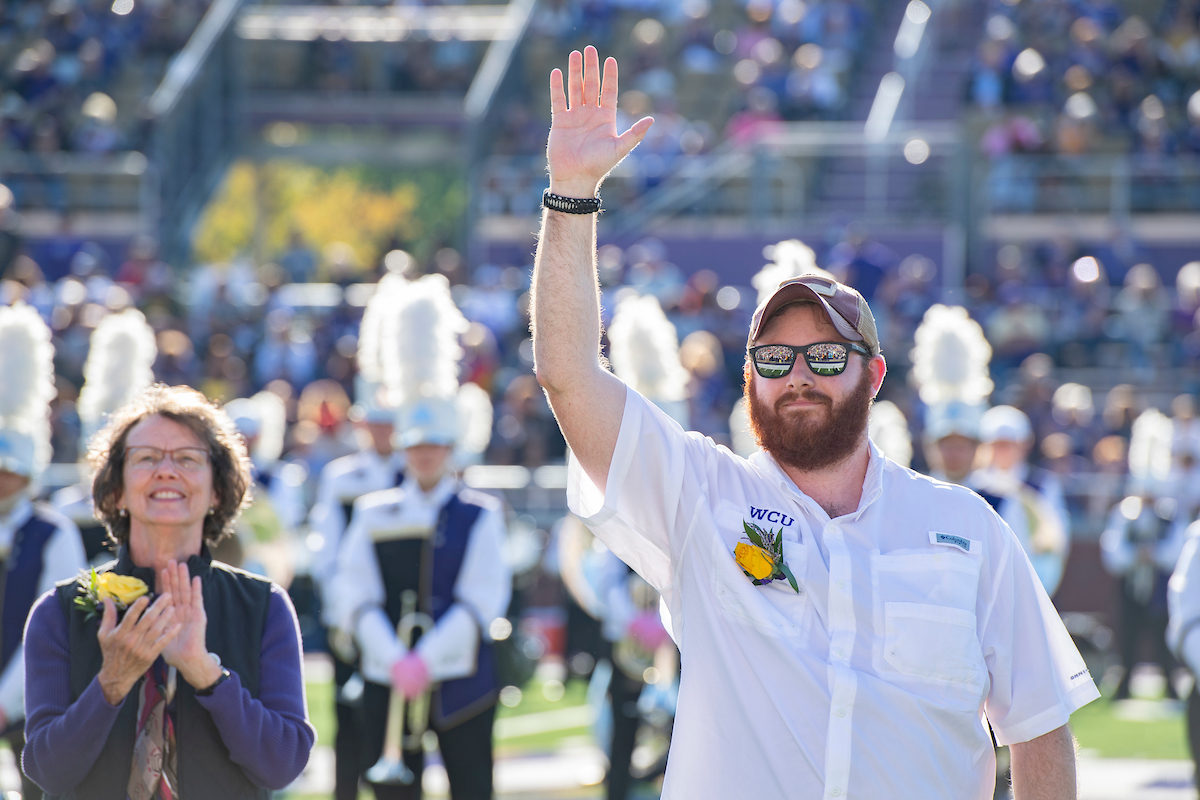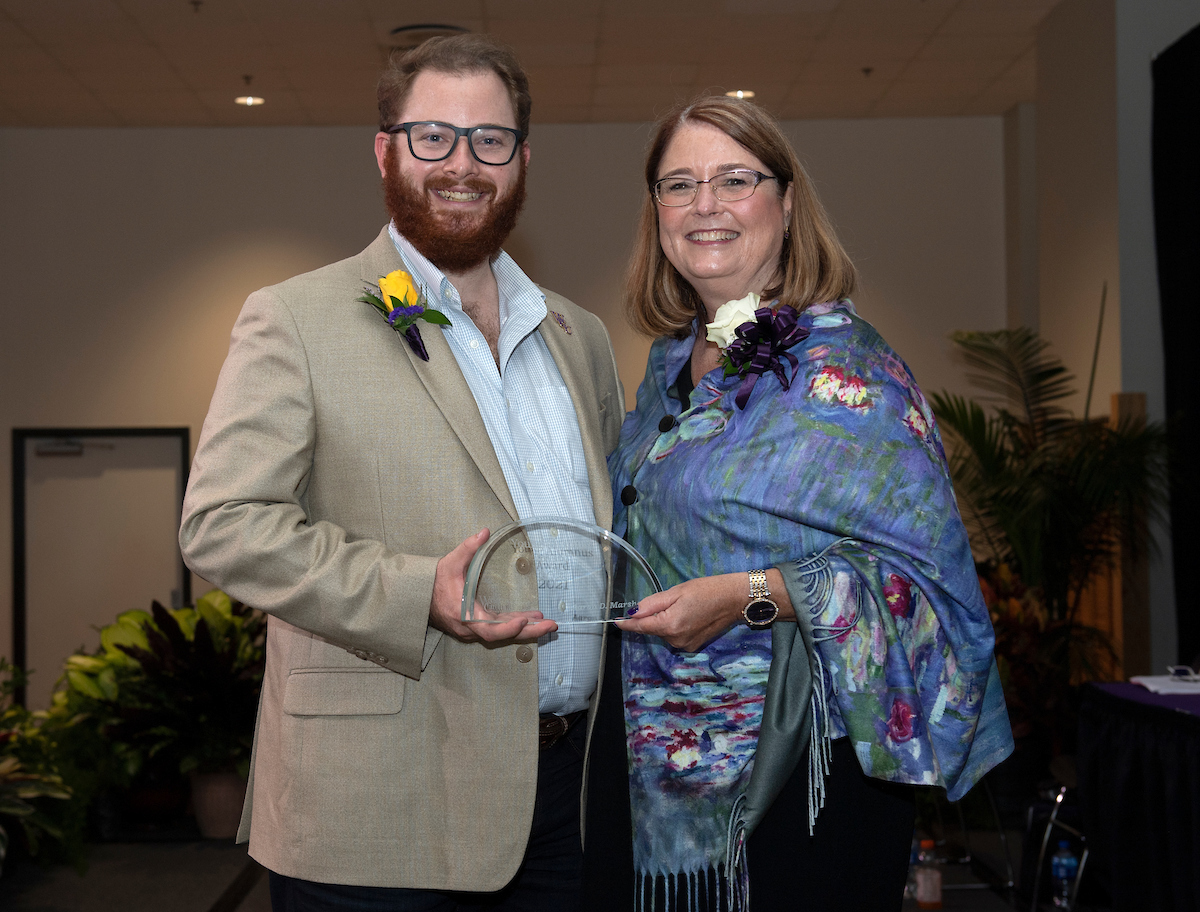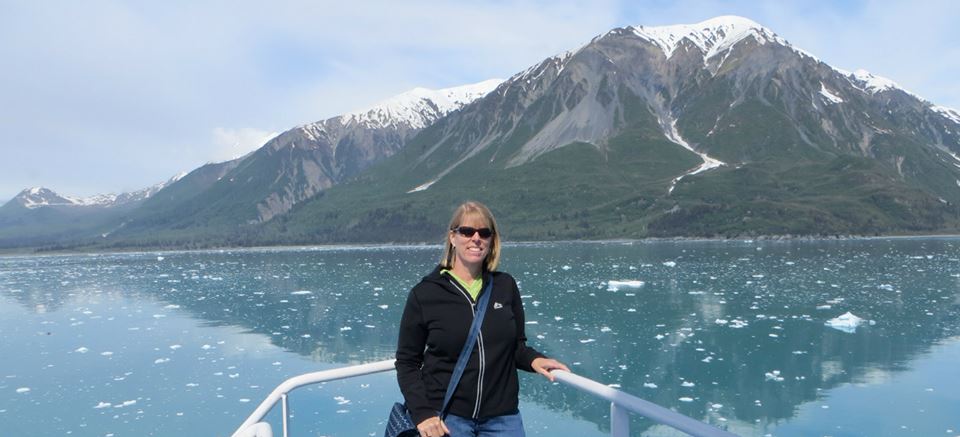Forestview High School, WCU graduate’s life of service leads to a new post with the US Congress

Aaron D. Marshall, a 2010 graduate of Gaston County’s Forestview High School and the son of a doctor and a nurse, chose to follow in the spirit of his parents’ footsteps of providing care to those in need. But instead of waiting for the injured to come to him in a nice sterile clinic, he goes to them, following the trail of chaos and destruction left by terrorism, hurricanes, earthquakes, tornadoes and other disasters.
A 2014 graduate of Western Carolina University, Marshall currently works for the U.S. Congress as a senior emergency manager for the Capitol Coordination Bureau of the U.S. Capitol Police, a job he began in October, less than 10 months after the Capitol riot of Jan. 6. In his new position, he works collaboratively with officials from the U.S. Senate, U.S. House of Representatives, Architect of the Capitol and U.S. Capitol Police.
“The insurrection and following riot and attack on the Capitol on January 6 as well as the death of Officer Billy Evans on April 2, 2021, played significant roles in my decision to come here and assist the USCP,” Marshall said. “I was offered the position and hand-selected by the staff here to support interagency coordination and on-scene operations within the National Capital Region.”
He has responsibility for command, control and coordination of disasters, crises, special events and emergencies for all-hazards in and around the U.S. Capitol complex, wherever the duties of the U.S. Congress are being discharged and across the District of Columbia. Marshall serves as an operations section chief and incident commander liaison providing operational support and assistance with continuity of operations and of government services to the U.S. Congress and U.S. Capitol.
He formerly worked for the Federal Emergency Management Agency as an operational planning adviser based in Washington, D.C., where he oversaw rescue and recovery efforts for disasters and emergencies across the nation. He’s been involved in emergency work since he was a freshman at Western Carolina University. Now 29, Marshall has participated in disaster response efforts in more than 100 countries on five continents engaging directly in more than 200 disasters around the world – and close to home.
He was involved in the coordination of resources responding to August’s flooding from Tropical Storm Fred in Haywood, Jackson and six other North Carolina counties and from Hurricanes Matthew and Florence throughout eastern North Carolina in 2016 and 2018, respectively.

In 2014, Marshall won the N.C. Campus Compact John Barnhill Civic Trailblazer Award, and the Team Rubicon Civilian of the Year Award in 2016. In 2020, he was inducted as a lifetime member of the All-Hazards Incident Management Team Association, and he is a graduate of the National Emergency Management Advanced Academy.
He also established the Marshall Alternative Service Experience Scholarship to provide financial support to students to participate in alternative break experiences at more than 30 North Carolina college campuses. And, he earned a master’s degree in public health from The Rollins School of Public Health at Emory University.
Where did it begin? As a high school student in Belmont, Marshall was moved by the destruction of 2010’s earthquake in Haiti and the response to the disaster by Team Rubicon, an international disaster response organization. He was already a firefighter and decided he wanted to do more.
When Marshall arrived at WCU in 2010 to study athletic training and sports medicine, he quickly met Lane Perry, director of the Center for Community Engagement and Service Learning, and joined the team of student volunteers. He also became a member of Team Rubicon and remains a volunteer today. But it was helping citizens of Moore, Oklahoma, clean up from an EF5 tornado in 2013 that convinced him to switch his major to sociology so he could better understand how people and groups interact in a disaster.
Perry said he is not surprised that Marshall has chosen a profession of helping others. “Aaron was one of those students who always strived to lend a hand and never pointed a finger. He was sincere and caring in his approach to service, and it always felt like he was doing it for a cause that was bigger than him, but better because of him. His community called him to serve, his heart energizes him to invest his full self into that service and his mind allows him to do so in a tempered and level-headed manner,” Perry said.
“Aaron is the type of person you’d want beside you in an emergency situation, the person you need on your team to envision a better future, and the kind of guy you’d want standing next to you having a celebratory beer after a huge life accomplishment,” he said. “Aaron makes the teams he is on, the communities he is of and the partnerships he is in better.”
So why does Marshall spend his life helping ease the pain of others? “It brings a tremendous amount of joy and fulfillment in helping an individual on their worst day. You know that they cannot repay that. It is empowering, selfless service at its very core,” he said.
Marshall points to the influence of WCU’s Center for Community Engagement and Service Learning as the cornerstone for his professional path. “From the first time I set foot in the office under Dr. Perry, it was drastically apparent that the life of service chose me as much as I chose it. During my tenure at Western, there were a number of disasters I viewed on the news that I felt a pull to help with – most notably the April 27, 2011, tornadoes in Tuscaloosa, Alabama, and the impact of Hurricane Sandy in 2012, which really codified my need to help others in disasters and emergencies,” he said.

Marshall received the 2021 WCU Alumni Association’s Young Alumnus Award, presented as part of Homecoming activities in October. He contributes regularly to the Center for Community Engagement and Service Learning’s endowment fund.
He said that it is personally gratifying to be able to give back to the university and the center that helped shape his life. “Western said ‘yes’ to a lot of my half-baked theories and ideas on how to help people. That vessel for fostering the opportunities I sought during my time at Western and a safe and supported environment for the opportunity were the greatest impacts Western has had for me,” he said.

